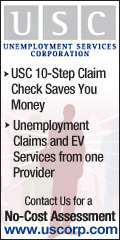
| September 2011 | Past Issues | Advertise |
Raising the Hiring, Productivity and Retention Bar by Using In-Depth Work Style & Personality Assessment Tools
These circumstances can be minimized during the initial hiring process by using several techniques including effective recruitment programs, skilled interviewing and in-depth work style and personality assessment tests. An in-depth assessment is a highly effective tool and an efficient use of company resources at this crucial point of the decision making process. This article focuses on in-depth assessment tests and how your company can benefit from them during the interview process, before a potential new hire turns into the wrong decision. An in-depth profile, in conjunction with a thorough interview process and good background check, can reduce the possibility of a hiring error. It also can provide your company with quantifiable information on a candidate’s specific strengths and weaknesses. Moreover, an assessment will offer objective, expert guidance on how best to manage and place that individual within your organization. Personality Assessment Testing – A Standard in Recruiting In-depth work style and personality assessments are a standard recruiting practice for many branches of the government and military, as well as many Fortune 500 companies when assessing potential hires for key or critical positions. They are used to reduce employee turnover and improve department effectiveness. Correctly interpreted, professionals can help guide your organization on how to best manage, communicate and train new hires and staff members. As with any business decision, having the right information is critical. Work style and personality assessment testing can provide insight into potential hires, as well as your current workforce, in several ways:
Which Assessment Tool Should My Organization Use? The following are some things to think about when reviewing various work style & personality profiles:
These are some general questions and if a profile falls short in any one area, we strongly suggest additional research into the accuracy of the data being generated. Frequently Asked Questions A frequent question from companies and organizations concerns the legal guidelines in administering assessments to potential employees. Industry regulations can vary and the best option is to consult with your company’s trade association or legal department. As a general rule, if your company uses an assessment, any test or set of hiring questions must be administered to all of the final candidates in order to assure that discrimination is not present. Additional information can be found online at the EEOC website, in the Disability-Related Inquiries and Medical Examinations of Employees section: http://www.eeoc.gov/laws/types/disability.cfm. An additional question concerns how a new hire may feel about taking an in-depth personality and work style assessment. There is a certain amount of "test anxiety" that can be common. However, the test demonstrates that your company is serious about who they hire. If your company explains that the goal of the assessment is to reduce turnover and is only one of several factors involved in the hiring decision, the individual usually responds very well. In many cases, the candidate may accept a position from the organization they perceive to be more thoughtful during the hiring process. Conclusion An in-depth assessment is only one component needed for a successful recruitment and hiring program. It can provide valuable information for critical personnel decisions. Combined with an effective recruitment program and skilled interview techniques, it can benefit your company as a whole, in addition to your individual employees. Armed with accurate and quantifiable data from an in-depth personality assessment, the interview process becomes much more reliable. Ultimately, this only adds to your organization’s bottom line, allowing more effective management of your existing workforce and limiting the potential for wrong hiring decisions.
|
|
303 Wyman Street, Suite 285, Waltham, MA 02451-1253 |
 |



